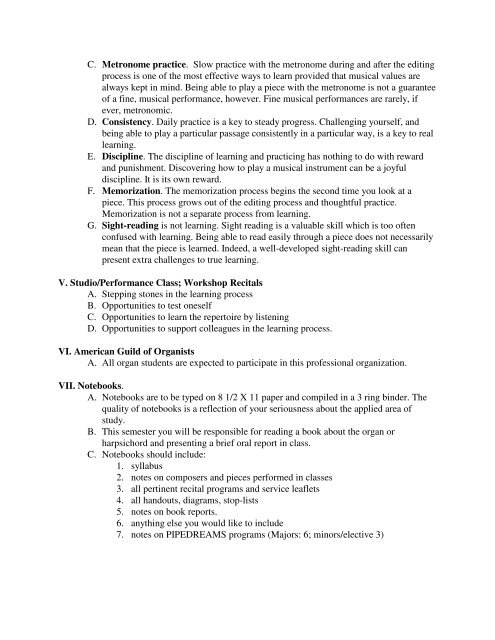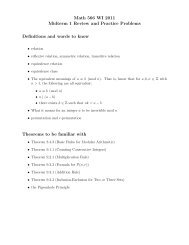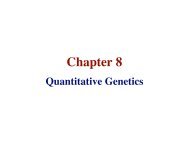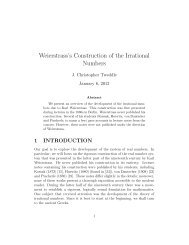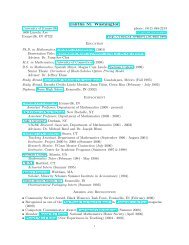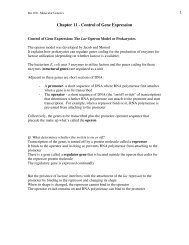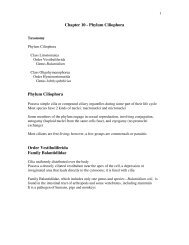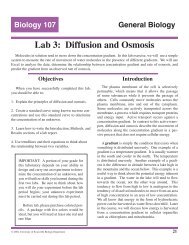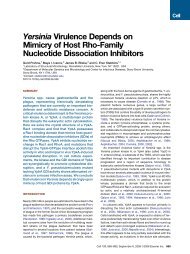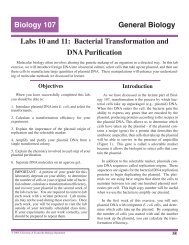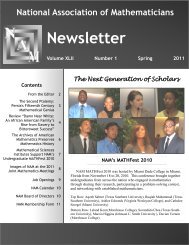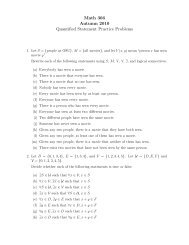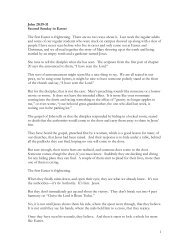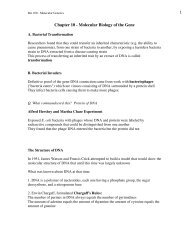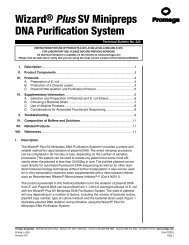Organ/Harpsichord Dr. Douglas Reed Syllabus I. General A. This is an
Organ/Harpsichord Dr. Douglas Reed Syllabus I. General A. This is an
Organ/Harpsichord Dr. Douglas Reed Syllabus I. General A. This is an
You also want an ePaper? Increase the reach of your titles
YUMPU automatically turns print PDFs into web optimized ePapers that Google loves.
C. Metronome practice. Slow practice with the metronome during <strong>an</strong>d after the editingprocess <strong>is</strong> one of the most effective ways to learn provided that musical values arealways kept in mind. Being able to play a piece with the metronome <strong>is</strong> not a guar<strong>an</strong>teeof a fine, musical perform<strong>an</strong>ce, however. Fine musical perform<strong>an</strong>ces are rarely, ifever, metronomic.D. Cons<strong>is</strong>tency. Daily practice <strong>is</strong> a key to steady progress. Challenging yourself, <strong>an</strong>dbeing able to play a particular passage cons<strong>is</strong>tently in a particular way, <strong>is</strong> a key to reallearning.E. D<strong>is</strong>cipline. The d<strong>is</strong>cipline of learning <strong>an</strong>d practicing has nothing to do with reward<strong>an</strong>d pun<strong>is</strong>hment. D<strong>is</strong>covering how to play a musical instrument c<strong>an</strong> be a joyfuld<strong>is</strong>cipline. It <strong>is</strong> its own reward.F. Memorization. The memorization process begins the second time you look at apiece. <strong>Th<strong>is</strong></strong> process grows out of the editing process <strong>an</strong>d thoughtful practice.Memorization <strong>is</strong> not a separate process from learning.G. Sight-reading <strong>is</strong> not learning. Sight reading <strong>is</strong> a valuable skill which <strong>is</strong> too oftenconfused with learning. Being able to read easily through a piece does not necessarilyme<strong>an</strong> that the piece <strong>is</strong> learned. Indeed, a well-developed sight-reading skill c<strong>an</strong>present extra challenges to true learning.V. Studio/Perform<strong>an</strong>ce Class; Workshop RecitalsA. Stepping stones in the learning processB. Opportunities to test oneselfC. Opportunities to learn the repertoire by l<strong>is</strong>teningD. Opportunities to support colleagues in the learning process.VI. Americ<strong>an</strong> Guild of <strong>Org<strong>an</strong></strong><strong>is</strong>tsA. All org<strong>an</strong> students are expected to participate in th<strong>is</strong> professional org<strong>an</strong>ization.VII. Notebooks.A. Notebooks are to be typed on 8 1/2 X 11 paper <strong>an</strong>d compiled in a 3 ring binder. Thequality of notebooks <strong>is</strong> a reflection of your seriousness about the applied area ofstudy.B. <strong>Th<strong>is</strong></strong> semester you will be responsible for reading a book about the org<strong>an</strong> orharpsichord <strong>an</strong>d presenting a brief oral report in class.C. Notebooks should include:1. syllabus2. notes on composers <strong>an</strong>d pieces performed in classes3. all pertinent recital programs <strong>an</strong>d service leaflets4. all h<strong>an</strong>douts, diagrams, stop-l<strong>is</strong>ts5. notes on book reports.6. <strong>an</strong>ything else you would like to include7. notes on PIPEDREAMS programs (Majors: 6; minors/elective 3)


